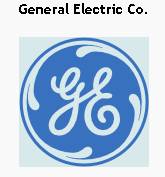Warm up
Questions
- Who is Jack Welch?
- How does Jack Welch manage General Electric?
- What has happened after Welch became GE’s chairman and CEO?
- What factors contribute to the success of a business?
Background
Jack Welch

John F. Welch, Jr.
Chairman & CEO 1981 - 2001
Mr. Welch, a native of Salem, Massachusetts, served as Chairman and Chief Executive Officer of General Electric from 1981-2001. During his 20 years of leadership at General Electric (GE) Welch increased the value of the company from $13 billion to several hundred billion.
Mr. Welch was born in Salem in 1935. He received his B.S. degree in chemical engineering from the University of Massachusetts in 1957 and his M.S. and Ph.D. degrees in chemical engineering from the University of Illinois in 1960.
In 1960, Mr. Welch joined GE as a chemical engineer for its Plastics division in Pittsfield, Massachusetts. He was elected the company's youngest Vice President in 1972 and was named Vice Chairman in 1979. In December 1980 it was announced that he would succeed Reginald H. Jones and in April 1981 he became the eighth Chairman and CEO. Mr. Welch retired as Chairman and CEO of General Electric in September 2001.
During his twenty-year reign of GE, Mr. Welch's management skills became almost legendary. His no nonsense leadership style gave him a reputation of being hard, even ruthless, but also fair when making business decisions.
Mr. Welch had little time for bureaucracy and archaic business ways. Managers were given free reign as long as they followed the GE ethic of constant change and striving to do better. He ran GE like a small dynamic business able to change as opportunities arose or when a business becomes unprofitable.
Through the 1980s, Welch worked to streamline GE and make it a more competitive company. He also pushed the managers of the businesses he kept to become more productive. Welch worked to eradicate inefficiency by trimming inventories and dismantling the bureaucracy that had almost led him to leave GE in the past. He shut down factories, reduced payrolls, cut lackluster old-line units. Welch's philosophy was that a company should be either #1 or #2 in a particular industry, or else leave it completely. Although he was initially treated with contempt by those under him for his policies, they eventually grew to respect him. Welch's strategy was later adopted by other CEOs across corporate America.
Each year, Welch would fire the bottom 10% of his managers. He earned a reputation for brutal candor in his meetings with executives. He would push his managers to perform, but he would reward those in the top 20% with bonuses and stock options. He also expanded the broadness of the stock options program at GE from just top executives to nearly one third of all employees. Welch is also known for destroying the nine-layer management hierarchy and bringing a sense of informality to the company.
Welch adopted Motorola's Six Sigma quality program in late 1995. He led the company to massive revenues. In 1980, the year before Welch became CEO, GE recorded revenues of roughly $26.8 billion. In 2000, the year before he left, the revenues increased to nearly $130 billion. When Jack Welch left GE, the company had gone from a market value of $14 billion to one of more than $410 billion at the end of 2004, making it the most valuable and largest company in the world.
GE saw great growth and expansion under Mr. Welch's leadership. Through streamlining operations, acquiring new businesses, and ensuring that each business under the GE umbrella was one of the best in its field the company was able to expand dramatically from 1981 to 2001.
In 1999, Fortune named him the "Manager of the Century," and the Financial Times recently named him one of the three most admired business leaders in the world today.
In September 2001, Mr. Welch published his autobiography, "Jack, Straight From The Gut (杰克:我的真心感受)" The book quickly jumped to the #1 spot on bestseller lists from "The New York Times," "The Wall Street Journal," Amazon.com, "USA Today" Non-Fiction and the Association of Independent Booksellers.
In addition to his new role as author, Mr. Welch serves as a consultant to a small group of Fortune 500 business CEOs
General Electric Company
 Major U.S. corporation and one of the largest companies in the world. Its products include electrical and electronic equipment, plastics, aircraft engines, medical imaging equipment, and financial services.
Major U.S. corporation and one of the largest companies in the world. Its products include electrical and electronic equipment, plastics, aircraft engines, medical imaging equipment, and financial services.
The company was incorporated in 1892, acquiring all the assets of the Edison General Electric Co. (founded as Edison Electric Light Co. by Thomas Alva Edison in 1878) and two other electrical companies. The company established a research laboratory in 1900, and many of its later products, including various home appliances, were developed by in-house scientists. In 1986 GE purchased the RCA Corp., including its television network, NBC.
GE has always been a multi-business company. Over the past 125 years, GE has swiftly evolved to seize new opportunities created by changes in technology and the economy. Today GE is building new platforms in industries and markets with about-GDP growth that provide opportunities to apply GE technology and management expertise to accelerate that growth.
GE's headquarters are in Fairfield, Conn. Jeffrey (Jeff) R. Immelt took over as chairman and CEO in September 2001.
http://www.ge.com

